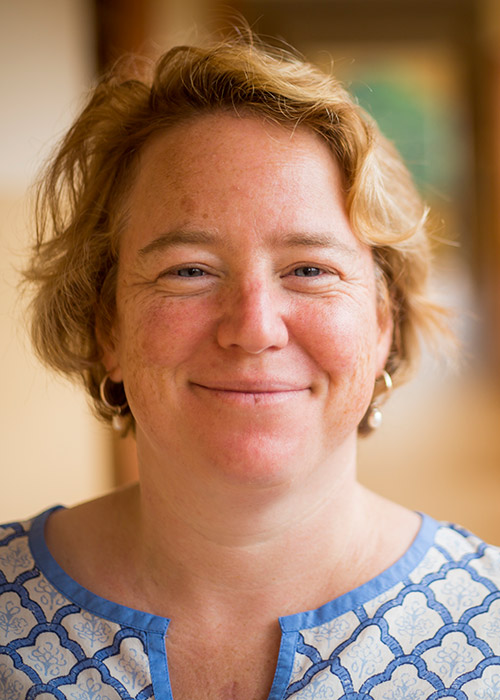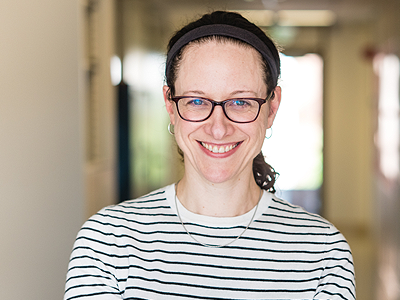Featured stories about SPH people, research and impact.
Read new stories on the SPH Blog
Featured stories about SPH people, research and impact.
Read new stories on the SPH Blog
Dr. Benjamin Danielson delivered a speech about the importance of a public health perspective to graduates of the UW School of Public Health on June 10, 2018.
An SPH study found that 63 percent of firearm-owning households in Washington state do not store their firearms locked and unloaded. The research received widespread local media coverage and was highlighted by Seattle Mayor Jenny Durkan in a legislative proposal to the Seattle City Council to require safe storage of guns.
The UW broke ground this spring on a new population health facility that will house much of the School of Public Health, including the Department of Global Health.
Associate Professor Ali Rowhani-Rahbar (PhD, Epidemiology ’09) was selected for the Bartley Dobb Professorship for the Study and Prevention of Violence, effective July 1. The endowment funds an appointed UW faculty member for five years to study the prevention of violence through resolution of conflict.
Kung-Yee Liang (PhD, Biostatistics ’82) is the new president of Taiwan’s National Health Research Institutes (a blend of the CDC and NIH). One of the world’s preeminent biostatisticians, he pioneered statistical methods that have yielded new insights into disease risk factors and genetic epidemiology. He also led the country’s first medical university.

Hilary Godwin, PhD, has been named the next dean of the University of Washington School of Public Health, effective July 15. She will succeed Joel Kaufman, who has served as interim dean since September 2016. Godwin is professor of environmental health sciences and associate dean for academic programs at the UCLA Fielding School of Public Health.
When Gabriel Cortez was planning for graduate school, he considered attending the University of Washington School of Public Health, but the expense loomed like a mountain to climb. The School was far from his small hometown of Aztec, New Mexico, and Seattle was a pricey place to live.
Victoria Gardner, EdD, MEd, was hired as the School’s inaugural Director of Equity, Diversity and Inclusion (EDI). Gardner, who will also use the title of Chief Diversity Officer, comes to SPH with nearly three decades of experience at the UW School of Medicine, where she served as director of the Office of Multicultural Affairs.

Interim Dean Joel Kaufman appointed Janet Baseman (PhD, Epidemiology ’05) as acting associate dean for public health practice.
After eight years at the National Institute of Mental Health, Pamela Collins joined the UW in January to lead its global mental health program, a joint effort of the Departments of Global Health and of Psychiatry and Behavioral Sciences.
On World No Tobacco Day, May 31, we take a look at some of the work done by student researchers to understand tobacco prevention and cessation.
Believe it or not, some cities and counties cannot pass local tobacco control laws that are stronger than those at the state level.
This is due to a relatively unknown rule, called preemption, which keeps local governments in Washington state from effectively regulating menthol and flavored tobacco products or from raising the tobacco-buying age to 21.
Emily Williams, associate professor of health services at the University of Washington School of Public Health, has received a two-year, $456,000 grant from the National Institutes of Health to study alcohol use among transgender adults.
The grant will also allow Williams and her colleagues to investigate whether evidence-based interventions to reduce unhealthy drinking behavior are received equitably in the population.
Higher concentrations of carbon dioxide are associated with reductions in protein and multiple key nutrients in rice, according to a new field study by an international team that included scientists from the University of Washington School of Public Health.
Sisters of the UW's Alpha Chapter of Chi Omega pass the baton in more ways than one.
A dozen current sorority members were inspired by sisters before them to pursue their undergraduate studies in public and environmental health.
"We place an emphasis on mentorship within our sorority, and the upperclassmen do a great job inspiring the underclassmen to explore public health," says senior Sydney Russell, of the public health major. “Our members are passionate about making a difference in Seattle and around the world.”
The fatal crash rate tends to increase when drivers turn 65 – but there are few validated tools available for predicting when an individual driver’s risk may start to increase. A new study from researchers at the University of Washington School of Public Health and School of Medicine, published in the Journal of the American Geriatrics Society, explored whether cognitive test scores can be linked to higher crash risk.
Amanda Fretts, assistant professor of epidemiology at the University of Washington School of Public Health, has received a $2.4 million grant from the National Institute on Minority Health and Health Disparities to test a program to improve the dietary habits of American Indians with type 2 diabetes.
The World Health Organization has set ambitious goals for reducing the global burden of malaria. However, there is no easy path to achieving a malaria-free world and there is a real need for innovation.
University of Washington researchers took part in a collaboration that recently set forth a new research agenda to accelerate malaria elimination and, in the long term, global eradication.
Juvenile chinook salmon migrating through contaminated estuaries in Puget Sound pick up drugs that may affect their survival and growth when it matters most.
Edmund Seto, of the University of Washington School of Public Health, has received a $100,000 grant to further study air quality near one of the busiest land border crossings in the world – the San Ysidro Port of Entry between San Diego and Tijuana.
The project will expand a community air study currently underway in the area to include additional air quality monitoring at sites in Tijuana, Mexico. The North American Development Bank, a binational bank governed equally by the United States and Mexico, awarded the grant.